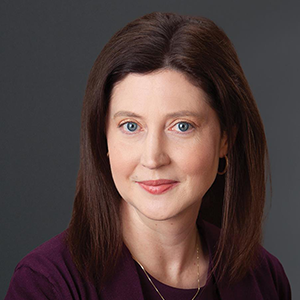The slow burn

When Pinewood Drive resident Hilary Wheatley got a call from a good friend last year, asking her to run for magisterial district judge, she agreed immediately—but it was not an impulsive decision. Instead, it was the next logical step in what she calls a “slow burn.”
The slow-burning fuse was ignited in the wake of the November, 2016, presidential election. Wheatley, a self-described “bleeding heart liberal,” was dismayed at the direction the country was taking and felt like she needed to do something, but at the time, she was in the middle of a divorce, coming to terms with being a single parent, and also hitting a milestone 40th birthday.
“I had a lot to process,” she said. “What will my 40s look like? What will parenting alone be like?”
Wheatley’s 10-year-old son, Garett Taylor, is a fourth-grader at Hoover Elementary School. The most recent addition to the Wheatley household is Quinn, a mini Bernedoodle puppy that at press time was having a minor issue with crate training.
The slow burn ignited in 2020, with the murder of George Floyd by a Minneapolis police officer. Wheatley had a job she liked—a litigator with a focus on real estate law—with colleagues she enjoyed, but that comfortable existence began to pale in light of the increasing discord and chaos that was splitting the country.
“I just felt like I had to do more,” said Wheatley. Becoming a legislator was not in the plan for several reasons, including the commute to Harrisburg, which would take time away from her family, and the transactional nature of politics in general did not appeal.
“Being a district judge just felt like the right job at the right time,” she said. Aside from the invaluable perk of working five minutes from home, “This job affords people on-the-ground access to justice. You’re most likely to appear before a district judge than any other judge.”
One of the issues Wheatley feels strongly about is the use of cash bail in the criminal justice system.
“How you feel about cash bail is a signal for how you feel about the whole justice system,” she said. “Cash bail is never mandated. Pre-trial services does not recommend it. I think cash bail is something that disproportionately targets poorer people.”
Her first week on the bench gave her a chance to release someone from having to post bail: a defendant with no history of failure to appear, held in the Allegheny County Jail waiting for his trial. Prisoners with sentences shorter than two years can serve that time in the county jail. All other jail inmates are either awaiting trial or have been arrested for parole and probation violations.
“We’ll see if he meets his obligations, but I didn’t see any reason to keep him in the county jail, where an astounding 98 percent of inmates have not been convicted of a crime, and are just waiting for their court dates. If we have to do that, can’t we do it cheaper and in a better place?”
One of Wheatley’s biggest challenges during and after the campaign has been adjusting to a more public lifestyle.
“Judges can’t be political at all,” she said. “That means no signs in my yard, no political fund-raisers, actually I’m still figuring out what I can and can’t do.”
Likewise, she used to be very vocal on social media, which she has to tone down significantly.
“To have to back off that stuff is hard,” she said. “Even being out in public is different now. I’m trying to find the balance between Hilary and Judge Wheatley.”
Dossier: District Judge Hilary Wheatley
Education: Ohio State University, bachelor’s in psychology Penn State University Dickinson School of Law, juris doctor
Experience: Litigator, Kimmel & Silverman, 2004-2007, Papernick & Gefsky, 2007-2021
Dispute resolution arbitrator, Allegheny County Court of Common Pleas 2004-present
Mediator and pro bono attorney, Allegheny County Housing Court
Volunteer experience: Mt. Lebanon Board of Appeals, 2013-2018
Mt. Lebanon Zoning Hearing Board, 2018-2021
Mt. Lebanon Junior Women’s Club, president, 2008-2009
Women’s Club of Mt. Lebanon, president 2016-2021





